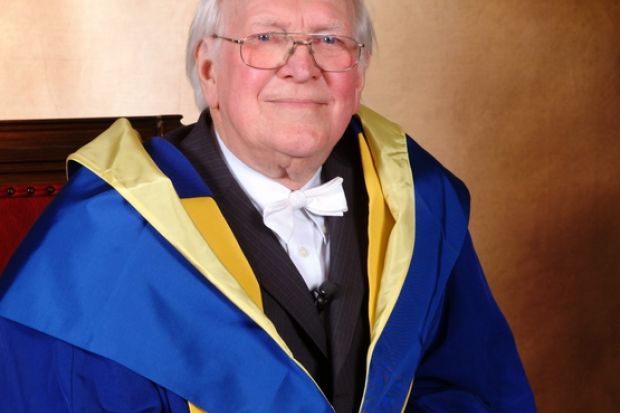A Nobel laureate who pioneered two major advances in 20th-century medicine has died.
Sir James Black was born in Lanarkshire on 14 June 1924 and educated at Beath High School, where pressure from a charismatic mathematics teacher led him to apply to St Andrews University to study medicine.
Although he secured a scholarship, won a number of prizes and joined the university's physiology department after graduation in 1946, money worries spurred him to take a lecturing post at the University of Malaya.
Returning to London with few prospects in 1950, Sir James was lucky enough to run into one of his old professors, which led to the opportunity to set up a new physiology department at the University of Glasgow Veterinary School.
A great believer in the idea that breakthroughs come from going against the received wisdom, Sir James moved frequently between the academy and industry, always seeking the best conditions for pursuing his research hunches.
After eight years at Glasgow, he worked for ICI Pharmaceuticals (1958-64) and then Smith, Kline & French (1964-73), before accepting a professorship at University College London (1973-77).
This was followed by a period at the Wellcome Research Laboratories (1977-84), and then a final academic post as professor of analytical pharmacology at King's College Hospital. After retirement, he served as chancellor of the University of Dundee from 1992 to 2006, where a centre has been established in his name.
This unusual career path allowed Sir James to make crucial advances that earned the pharmaceutical industry billions of pounds, although he gained little financial reward from them himself.
During his time at ICI, which he once described as "an educational tour de force", he promised a superior merely that he was sure he "could develop a new pharmaceutical agent that might answer a physiological question".
In the event, he developed propranolol, the first of the beta blockers, which transformed the treatment of angina, heart attacks and high blood pressure. Although it rapidly became the best-selling drug in the world, it was eventually overtaken by Sir James' second great discovery, cimetidene (the first of the so-called "H2 antagonists"), which has proved highly effective in the treatment of gastric ulcers.
The development of two major classes of drug that have alleviated so much suffering led to a knighthood in 1981 and the Nobel Prize for Physiology or Medicine in 1988.
Sir James died on 22 March 2010 and is survived by his second wife, Rona McLeod MacKie, and a daughter from his first marriage.
